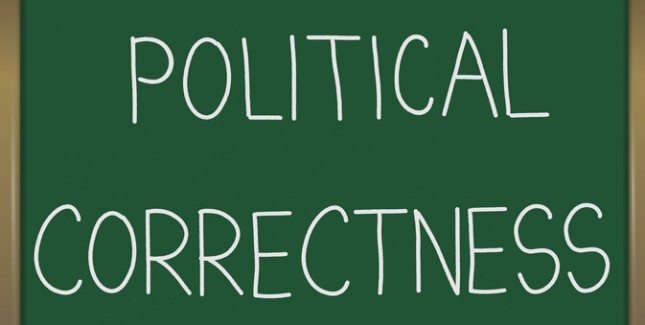Nathan Bridge, News Editor
Merriam-Webster’s Dictionary defines political correctness as the “conformation of the belief that language and practices which could offend political sensibilities (as in matters of sex or race) should be eliminated.” It is the the idea of suppressing certain terminology or ideas that could be deemed offensive, in the interest of being culturally sensitive.
Many Americans believe, particularly in this day and age, that it is important to retain political correctness. It is especially valued on college campuses, which can be brimming with diversity of races, religions and ideals. There is pushback against political correctness, as many believe it is a form of censorship and infringes on people’s right to free speech.
Student Sara Harrison-Lusk believes the balance between censorship and political correctness is a fine line to walk.
“You should be diplomatic and respectful, but also not beat around the bush,” said Harrison-Lusk in regards to political correctness culture on college campuses. “It’s important not to be derogatory and offensive to people, but at the same time, I think that people tend to get offended a little bit too easily. Colleges could free up those reins a little bit and let people be more free to say how they feel.”
Fellow student Terrell Davis believes that political correctness is better handled on an individual basis, rather than as a one-size-fits-all issue.
“I feel like you need to know who you’re talking to and be able to go by that person’s feelings,” Davis said. “You should still give them your opinion, but in a respectable way.”
In regards to viewing comments in different contexts, Davis also referenced the controversial Snapchat incident that occurred earlier in the semester when several students posted pictures to the UC Moose page of signs made at cafeteria tables that read “Whites only, we’re privileged” and “Black People Section.”
“I actually know those people, and I don’t think they meant anything hateful or racist by their message,” Davis said. “It was a bad joke that should’ve stayed private, and they weren’t thinking about how public they were making it. To them, it might be a joke, but the school had to let them know that other people could see that and take it as a legitimately racist message.”
Students are not the only ones who have to be aware of cultural sensitivity on college campuses.
Douglas Croft, a communications professor at Utica College and manager of WPNR, deals with free speech every day both as a broadcaster and as an instructor. He believes that political correctness is important, but also that it can be interpreted in a variety of ways.
“To me, striving for some degree of political correctness is about your willingness to be a responsible citizen of the culture you live in,” Croft said. “Don’t get me wrong, I don’t think it’s reasonable that we could live in a utopia full of neutral, unbiased opinions. In fact, our differences and different opinions is what makes our culture stronger. Yet, I feel we should be striving to build positive stereotypes or at least allow people to create individual opinions based on their own experiences, not divisiveness. Celebrate differences respectfully and be a responsible citizen of your culture and language.”


















![President Todd Pfannestiel poses with Jeremy Thurston chairperson Board of Trustees [left] and former chairperson Robert Brvenik [right] after accepting the university's institutional charter.](https://uticatangerine.com/wp-content/uploads/2023/10/unnamed.jpeg)


















































































































